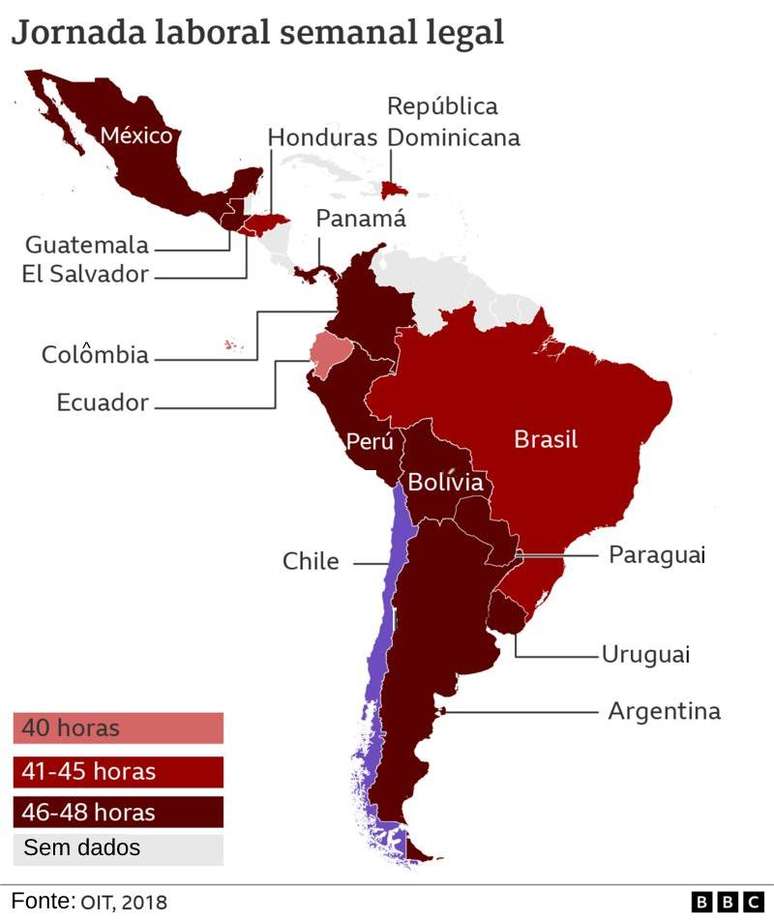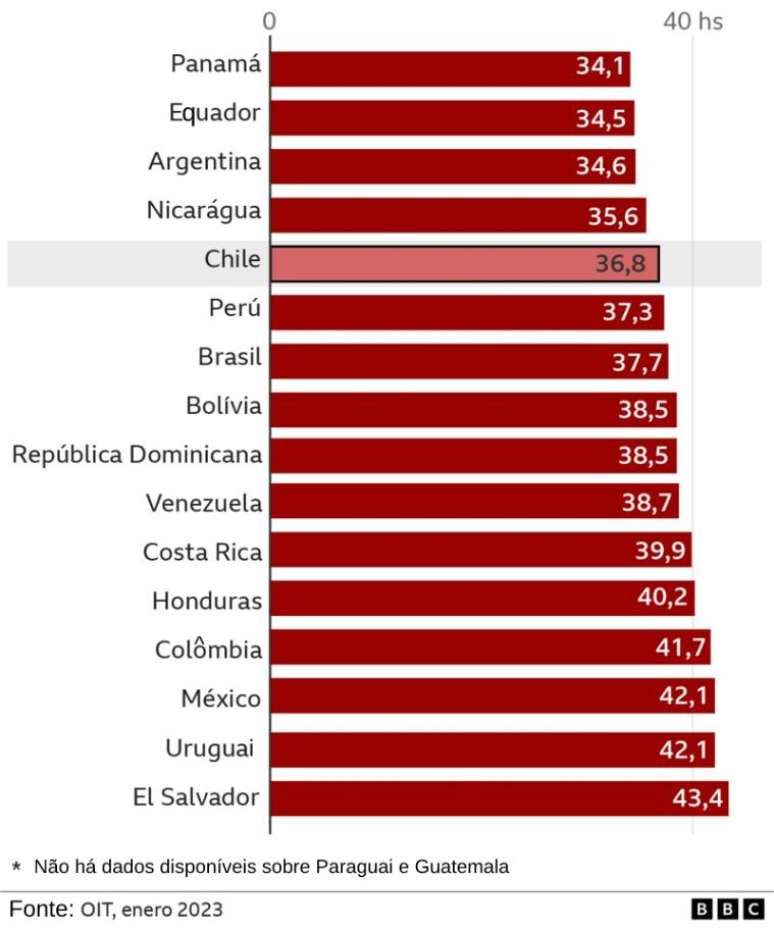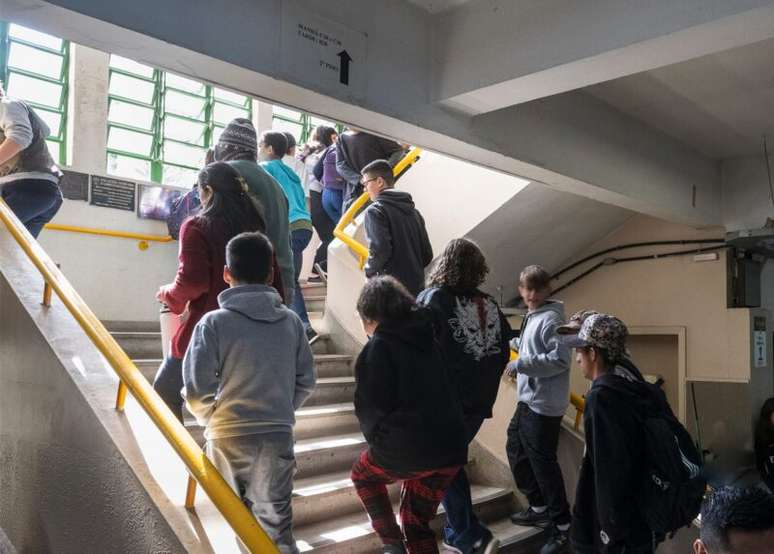The new Chilean law gradually reduces the working day over five years
The Chilean Congress on Tuesday approved the reduction of the weekly workweek from 45 to 40 hours, making that country the Latin American nation with the shortest working hours together with Ecuador. In Brazil, the journey defined by the CLT is 44 hours.
The proposal, sanctioned by the Chamber of Deputies after the unanimous approval of the Senate, progressively reduces the working day over five years.
One year after its implementation, working hours will be reduced to 44 hours per week. After three years the limit will be 42 hours and after five years it will reach 40 hours, which is the working day recommended by the International Labor Organization (ILO).
Chilean law provides for the possibility of working four days and three rest days (contrary to current legislation which provides for a minimum of five working days) and contemplates the possibility of working a maximum of 5 hours of overtime per week (today, up to 12 hours overtime is allowed).
Fabio Bertranou, director of the ILO’s regional office in Santiago, told BBC News Mundo, the BBC’s Spanish-language service, that the law includes a special regime for sectors that require overtime, such as mining or transport .
In these cases, employees will be allowed to work shifts of up to 52 hours per week, provided they subsequently have more days off to compensate.
“The law contemplates the possibility that the 40 hours a week can be reached by averaging four weeks. So, if you work an extra week, the important thing is that the average is 40”, he explained.
With this law, Chile becomes the second Latin American country, after Ecuador, to approve the working week recommended by the ILO.
In this map you can see what the labor legislation provides for in the rest of the region.

After this approval, Chile is aligned with most of the other 38 countries in the Organization for Economic Co-operation and Development (OECD), where the 40-hour week is also in effect.
The only exceptions are Australia, Belgium, Denmark, France and the Netherlands, where people work less than 40 hours, and Germany, Colombia, Costa Rica, Ireland, Israel, Mexico, the United Kingdom, Switzerland and Turkey, where they work more.
How much work is done in Chile today?
But what the law says is one thing and what reality says is another.
Although current regulations in Chile allow working up to 45 hours a week – a journey that has been reduced from 48 hours in 2005 – ILO statistics show that average hours worked are much lower.
According to January 2023 data, employed people in Chile worked an average of 36.8 hours a week.
As you can see below, this is one of the lowest averages in the region.
Average hours worked

Indeed – as you may have noticed – the average hours worked throughout Latin America are well below the limit set by law.
If we make a global comparison, the average weekly hours worked in Latin America and the Caribbean (39.9 hours) is much lower than that of Arab countries (44.6 hours), Asia-Pacific (47.4 hours), East Asia (48.8 hours) and South Asia (49 hours).
Instead, it is longer than Western Europe (37.2 hours), North America (37.9) and Africa (38.8 hours), according to 2019 data compiled by the ILO.
Does this mean that little work is done in Latin America, and in Chile in particular?
“No,” replies working time expert Najati Ghosheh, who works at the ILO headquarters in Geneva, Switzerland.
“It happens that in some countries the time worked is measured only in the formal sector and not in the marginal one, where there are more workers who get jobs only by the hour, which lowers the average,” he explained to BBC Mundo.
According to Bertranou, the data provided by Chile includes the informal sector, which represents 27% of workers.
Of the total workforce, about 45% work a 45-hour week, but over 40% work fewer than 35 hours.
Meanwhile, 11% work beyond the maximum permitted by law today, with shifts exceeding 49 hours per week.
Bertranou highlighted that the Chilean labor reform has been achieved thanks to the fact that “a space for dialogue has been opened with the business sector” and there has been a consensus in Chilean society on the importance of “freeing up time to have more life familiar and to be able to enjoy the public space”.
According to the ILO, which approved its 40-hour day convention in 1935, working more increases the number of occupational accidents and health problems, but does not guarantee more productivity, because there is more tiredness.
“Latin American legislation is lagging behind with regard to working hours and it is imperative that a review is carried out,” recommended Bertranou.
Source: Terra
Rose James is a Gossipify movie and series reviewer known for her in-depth analysis and unique perspective on the latest releases. With a background in film studies, she provides engaging and informative reviews, and keeps readers up to date with industry trends and emerging talents.






